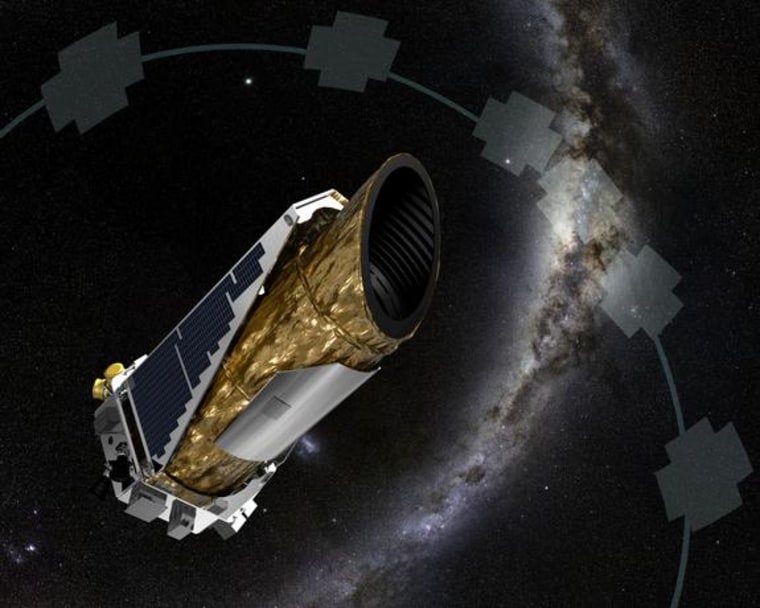NASA's planet-hunting Kepler probe suddenly went into hibernation-like emergency mode last week, and scientists don't know why.
The $600 million space telescope technically finished its original mission in 2012, but because it was so successful — having discovered more than 1,000 confirmed exoplanets — it has been kept on duty studying young stars, supernovae and other astronomical objects.
Last July, NASA announced that Kepler had found the most Earth-like planet ever spotted — a small, rocky planet named Kepler 452b and quickly nicknamed "Earth 2.0" — 1,400 light years from Earth.
Mission operations engineers discovered that the Kepler spacecraft was in emergency mode on Thursday, mission manager Charlie Sobeck said. That's the lowest so-called operational mode, it's very "fuel intensive," said Sobeck, who said recovering from the emergency is the team's No. 1 priority.

Figuring out what's wrong is complicated, because Kepler is now almost 75 million miles from Earth — meaning that even at the speed of light, it takes 13 minutes for a signal to travel to the spacecraft and back, Sobeck said.
The spacecraft was operating as expected the last time contact was made, on April 4, he said, so whatever shut it down happened in a narrow window.
Related: Kepler Spacecraft Has Discovered a Trove of New Alien Planets
Just last month, NASA declared Kepler's extended mission, called K2, a "smashing success," saying the 6-year-old spacecraft had been running "with scarcely a whiff of trouble."
"We have come a long way in the last 20 years, and with Kepler's success we are riding the K2 mission into new territory," it said last month.
